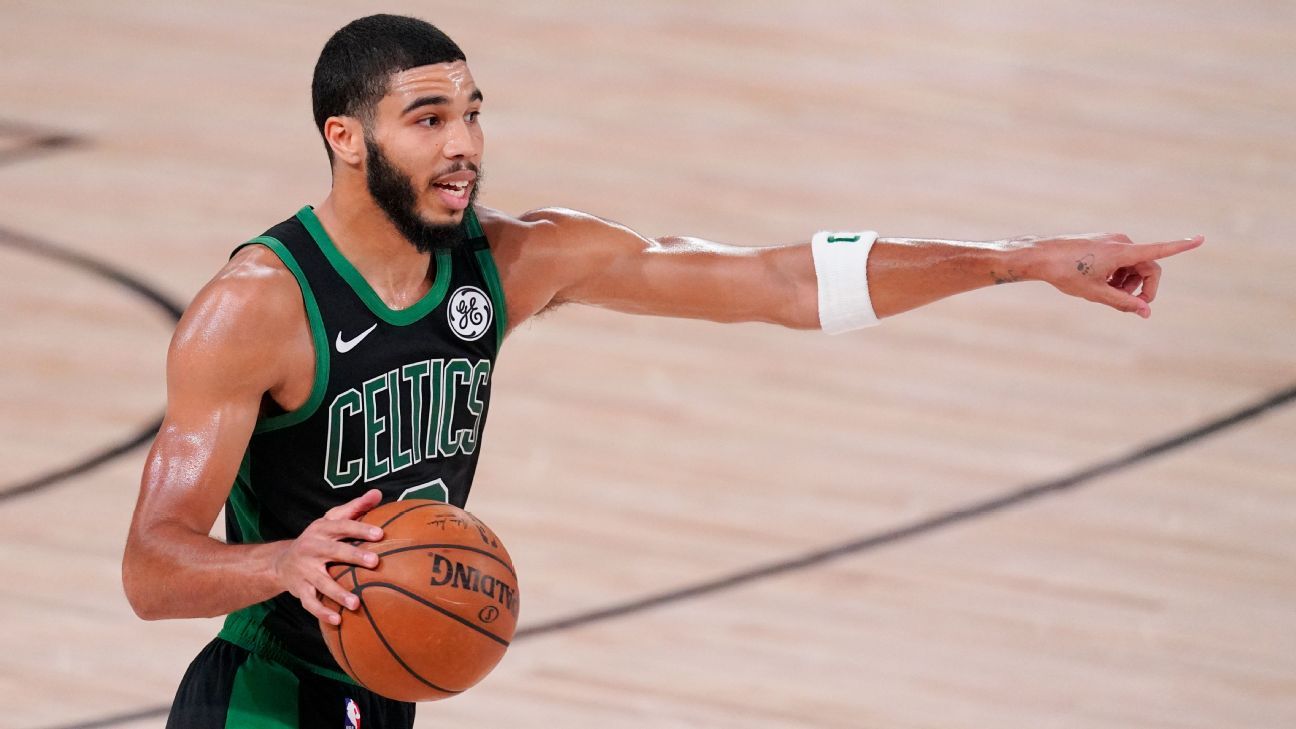BOSTON – Boston Celtics star Jayson Tatum said he is still dealing with the aftermath of COVID-19 more than a month after he initially tested positive for the virus.
“I think it affects your breathing a little bit,” Tatum said after the team’s target practice Tuesday afternoon before hosting the Denver Nuggets. “I’ve experienced a few games where, I don’t want to say (I was) struggling to breathe, but, you know, you get tired a lot faster than normal.
“Just by running up and down the court a couple of times, it’s easier to get out of breath or get tired a lot faster. I’ve noticed it since I had COVID. It’s something I’m working on.
“It has improved since the first game I played, but I still manage it from time to time.”
Tatum, who is averaging 25.6 points, 7.1 rebounds and 4.5 assists in 21 games this season, missed five games in addition to the entire week – the Celtics were stopped for not having enough players available to play – after testing positive for COVID. -19 at the beginning of January.
And, since returning to Chicago on January 25, his numbers have been notably lower than before he got sick. In the 10 games Tatum played before missing out, he averaged 26.9 points on 47.4 percent shooting overall and 43.8 percent from 3-point range. In the 11 games he’s played since returning, he’s averaging 24.5 points per game on 42.7 percent shooting overall and 36.5 percent from three-point range.
In those games since he returned, Tatum’s minutes have also increased slightly, going from 34.6 minutes per game before to 36 minutes after.
Tatum said he’s talked to Celtics coach Brad Stevens about how he’s feeling, and he said it’s not a consistent thing he’s dealing with. Instead, it’s something that comes and goes, and what he’s trying to deal with while playing a condensed NBA schedule, all while averaging 35.3 minutes per game, his career-high.
“It’s something we’ve talked about,” Tatum said. “And it’s not like it happens in every game and I don’t feel it in the whole game. It’s just certain stretches where the breathing is a little out of control and I talk to the medical staff and the coaching staff about it. Obviously, it’s been improved from the first game that I came back and played.
“I guess it’s a long process. I talked to other guys who have had it and they say they experienced the same and it just gets better with time. But as much as we play, I guess it takes a little while longer.”
Entering Tuesday night’s game against Denver, Boston has lost four of its last five games and seven of its last 10, dropping to .500 on the season. Much of that stretch has come without the help of winger Marcus Smart, who remains out with a calf strain. That adds to star guard Kemba Walker only available for half the games in a row due to his ongoing knee problems, and the continued absence of second-year wing Romeo Langford, who has yet to play this season due to wrist surgery that was done out of season.
As a result, Stevens has relied heavily on Tatum and Jaylen Brown, his two young stars, to take over. While Tatum is dealing with the lingering effects of COVID-19, Brown recently missed two games with knee tendonitis.
Stevens said it’s a tough challenge to balance the minutes when the team is struggling as it is and dealing with a lack of depth at the wing.
“Sometimes my 15-year-old son asks me when I get home, ‘Hey, can you, you know, why isn’t Tatum here? Why isn’t Brown here?’ Because they have to sit down at some point, “Stevens laughed before Sunday’s loss in Washington. “You can’t play those guys 48 minutes a game every night, right? So, you’re balancing that.
“We have to do everything we can, like you said, to manage the big view and the game itself. And that’s a challenge. That’s a real challenge when you’re a team that is, really, a .500 team, and You’re coming and going, and you’re not necessarily falling behind, you’re not really creating separation, you’re just, you know, you’re one of many. It can get to the point where that balance can be a little bit better.
“But I’ll say this: it’s a lot easier to strike that balance if you have 10 games over .500, or if you’re 15 games over .500 or whatever. But it’s something we have to take into account.”
– .


